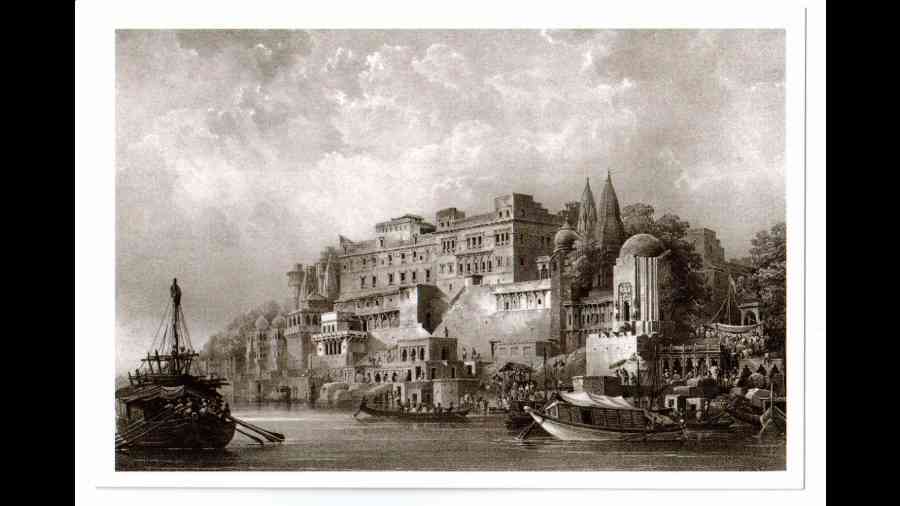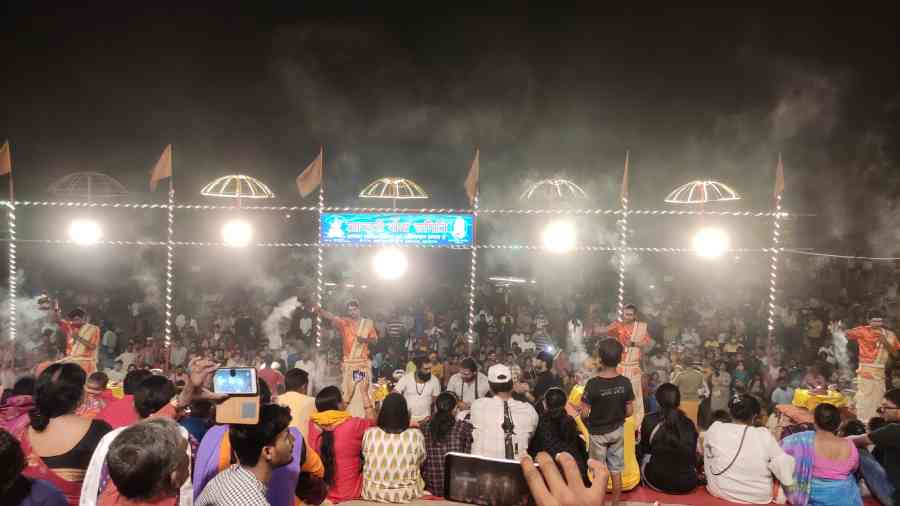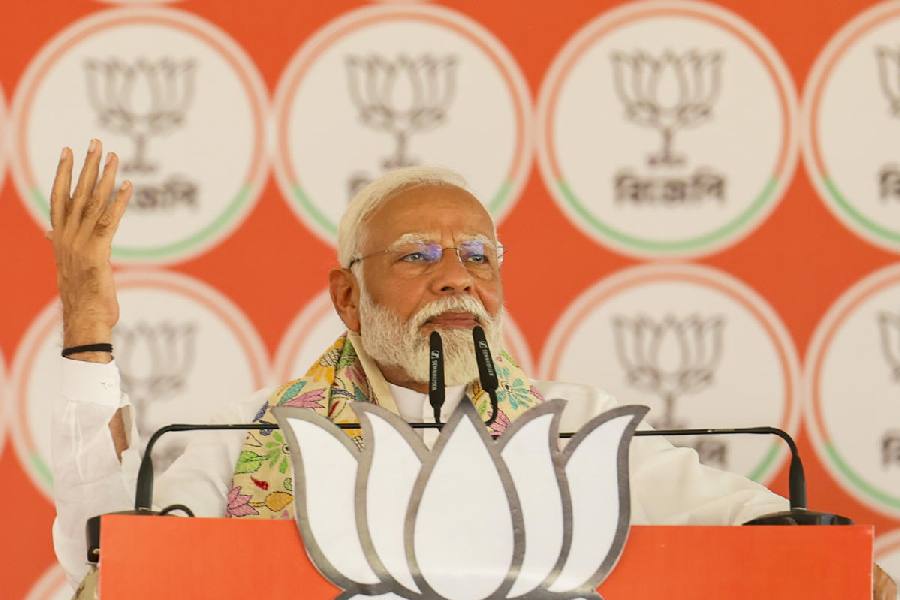A visit to Kashi, among the oldest cities of the world, is deeply personal. For Kashi, or Varanasi, is at the confluence of life and death and all that happens in between. Kashi is the city of faith. We come in search. We come to make amends. We come to seek forgiveness. We come in remembrance. We come in acceptance. We come in peace. We come to pay our respects, to express our gratitude. We come in prayer.
As the cradle of Hinduism, Kashi is meant to be unifying; the cornerstone of an ancient syncretic culture that, despite its many contradictions, seeks to bind. Kashi's flavour of love and devotion is nurtured by the once mighty Ganga still flowing alongside majestically. She's been there throughout, bearing witness, and cleansing our sins. Having done so for centuries, she is now tired and weary. She has shrunk, filled to the gills with all the muck we have shed.
And lording over Kashi and its many avatars is The Lord himself. As Vishwanath, He was till recently quietly ensconced at his abode as if in benign emphasis of his unfussy nature. A little water was enough. Maybe a simple garland of akundo phool tied together loosely. That's all he ever wanted.
Now He is bathed in LED brilliance and marble caked opulence. The spectacular arati on the banks of the Ganga is a sound-and-light show with music blaring from loudspeakers. Thousands throng the ghats every evening for a piece of this never-to-be-missed event. Their cellphones in focus, lemon tea is a vendor away. Business is brisk.
On the way to Dashashwamedh Ghat, hundreds walk along, only to stop at times to pick up one of those colourful shirts with Har Har Mahadev calligraphy. Some buy bangles for the wife and daughter. Others a dug-dugi to silence that bawling boy who has probably been scarred for life at the sheer size of the crowd in procession. Many even find the time to grab a quick plate of Varanasi's famous chaat.
Kashi is a land of many temples, small, big or medium. On the roadside or on the top floor of what was once a home. At last count "tetthrish koti (33 crore)", or so deadpanned Feluda at Lalmohanbabu's prodding. The steps on Dashashwamedh Ghat are moss-laden and slippery. If you fall while taking that mandated dip, you are gone before you can say "Gangadin". Not one of those 33 crore gods can save you. At Assi Ghat, there is a nasty stench though _ never mind that it's familiar. Nearby on a saffron painted metal bench are the white metal snake-hooded flame holders. Look at them instead. At least 20 of them, the soot washed clean and left to dry after last night's arati. They are in wait. To be lit with camphor later in the evening by men in silk and swayed ceremoniously in ovation to the River Goddess.
What exactly is there in the sanctum sanctorum of Baba Vishwanath's temple? In what avatar do you get to see the Lord there, I kept asking. "You know I don't quite know how things are inside now. Haven't been there in ages. It's so crowded," said a local resident sheepishly. "I grew up here," said the son of the owner of Kashi Annapurna Book House at Assi Ghat. "We used to play cricket on these steps... I have seen many faces of the river," he added, pointing to the tents set up on the riverbed for tourists. "I am sure I will see many more," he mumbled. His shop is at a vantage point. There are sofas beside the windows. The view is of the river. Closer, one could witness the arati at night too. But Annapurna Book House usually closes by then.
Nearby, a short flight of steps down, is Harmony Book Store where James Prinsep shares space with, among many others, Geetanjali Shree, Annie Ernoux and Ismat Chughtai. Fiercely independent, these women of elevated thought have paved a path for themselves and the world. Prinsep's album of sketches titled 'Benares Illustrated' is a paean to the Kashi of yore, black and white depictions of who we were and where we came from. As for what we have become, the crow conference in Shree's 'Tomb of Sand' offers even more pointers.
Boats sail to and fro down the length of the river. Some of them are being rowed, while some are propelled by technology. We spot a couple of smaller cruise-liners purposefully gliding by with folks who have paid a hefty sum for a vantage view of the proceedings at the ghats during arati.
These days Kashi is a carnival that simply goes on and on. Day after day. Month after month. Year after year. The pomp and pageantry have grown in scale since 2014, the year of my first visit to the 'city of light'. Then it was about loss, grief and the impossibility of closure. Today, it's about questioning the answers. The colours are blinding. The chants deafening. "Pagal ho gaya hai aadmi log (people have gone mad)," said the young man manning a curio kiosk at Dashashwamedh Ghat chock-a-block with people waiting for the evening show to begin in frenzied anticipation.
His words stood out, unwittingly invoking a Tagore song of eternal resonance. "Tomar pujar chhale tomai bhulei thaki / bujhte nari kokhon tumi dao-je phaki". So busy am I in celebrating You that I have lost sight of who it is I am praying to, too engrossed to even notice when You have given us the slip, laments the Poet Laureate. Yet there was a time when it was alright to be alone in prayer, reaching out from a corner of one's heart, from the quiet of one's home without perhaps a visit to a place of worship. "Kaj ki amar mondirete anagonai _ pathbo ashon apon moner ekti konai, saral prane nirab hoe tomai daki."
In new India, Kashi has been robbed of the personal. We don't come in search any more. We don't come to make amends. We don't seek forgiveness. We certainly don't come in remembrance. Nor do we come in peace. It is no longer me and my God. I may be in Kashi, visiting. But my God has long left Kashi.

Dashashwamed Ghat, 1831 Sketch by James Prinsep (Pilgrims Book House)










